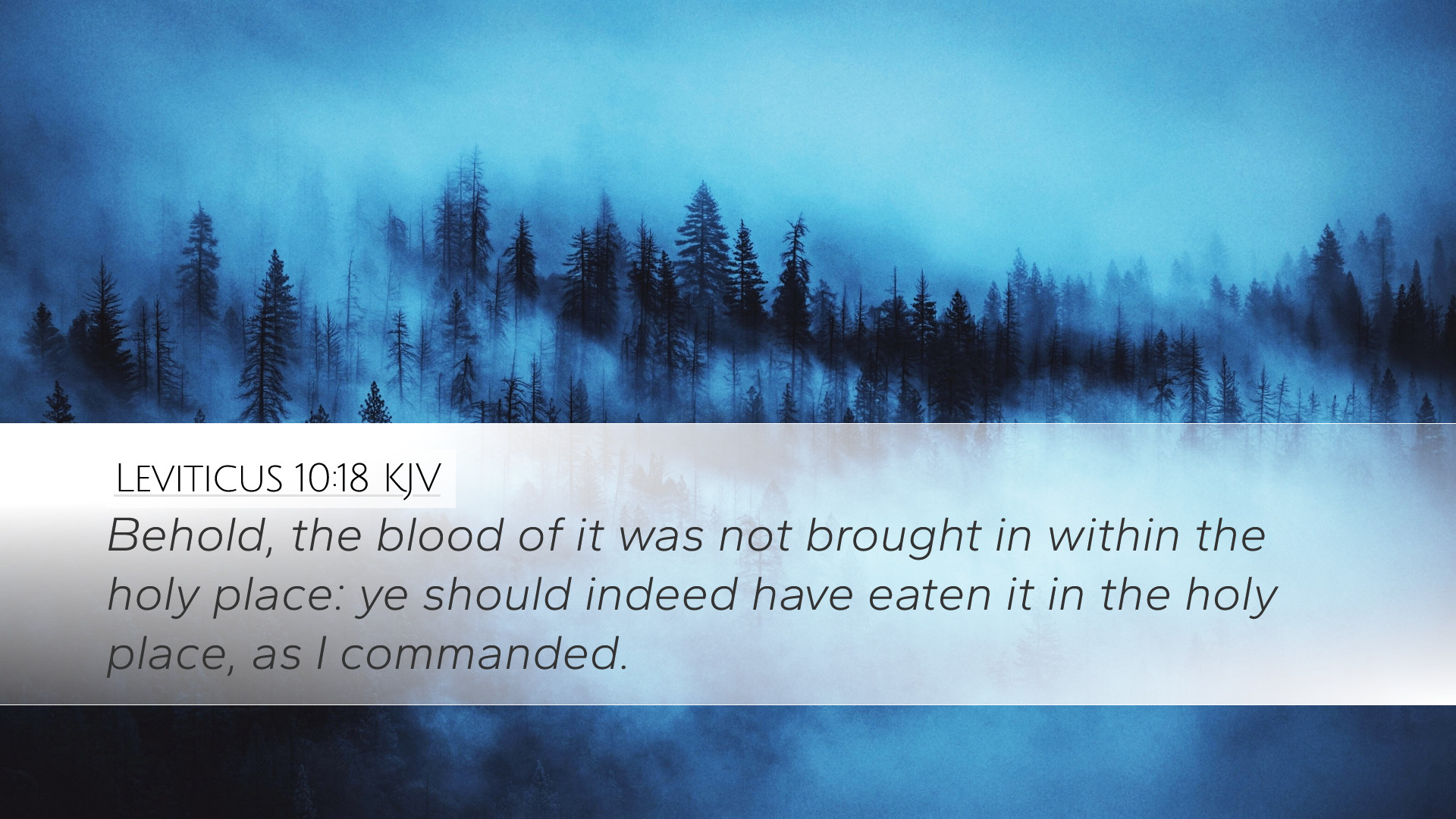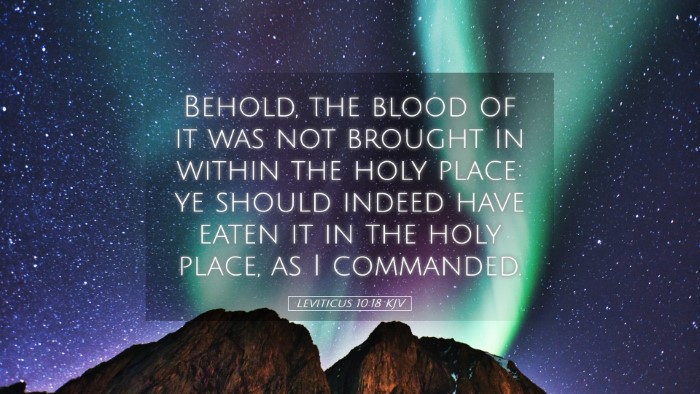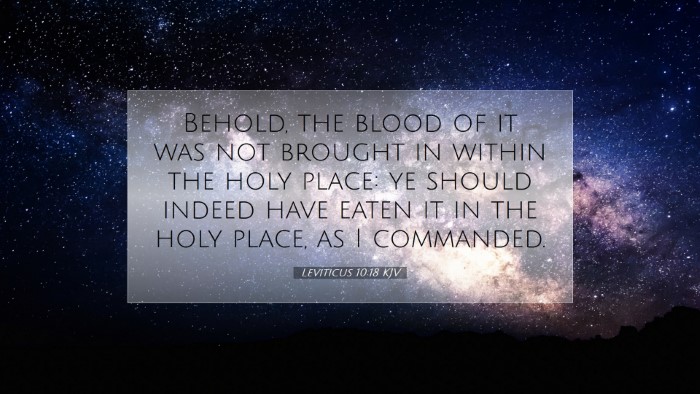Commentary on Leviticus 10:18
Bible Verse: "Behold, the blood of it was not brought in within the holy place: ye should indeed have eaten it in the holy place, as I commanded." (Leviticus 10:18)
Introduction
The verse in focus, Leviticus 10:18, stems from a broader narrative concerning the conduct of the priests and the protocols surrounding sacrifices in the Israelite worship system. This commentary synthesizes insights from traditional public domain sources, aiming to provide clarity and depth for pastors, students, and theologians.
Contextual Background
The book of Leviticus is primarily concerned with the laws governing worship and the sacrificial system established for the Israelites. Chapter 10 follows the tragic incident involving Nadab and Abihu, the sons of Aaron, who offered "strange fire" before the Lord and were consumed by divine fire as a result (Leviticus 10:1-2). This chapter, therefore, serves as a critical reminder of the holiness required in the service of God.
Interpretation of the Key Elements
The Importance of Blood
Understanding the significance of blood in biblical sacrifice is paramount. Matthew Henry notes that blood represents life and serves as a key element for atonement, as seen throughout the sacrificial system. In Leviticus 10:18, the directive pertaining to the blood signifies adherence to divine command, emphasizing that the protocols of worship are not to be altered or neglected.
Eating in the Holy Place
Albert Barnes highlights that eating the flesh of the sacrifice within the holy place was not merely an act of communion but a directive that reinforced the covenantal relationship between God and the priests. This practice stressed the ordinances set forth in the law and the consequences of deviating from them. Eating the sacrifice in a prescribed manner was a profound act that symbolized partaking in the holiness and sustenance provided by God.
The Command of the Lord
Adam Clarke points out that God’s commands during the sacrificial rites are not arbitrary but serve to shape the identity of the community as a people set apart. The insistence on compliance with God’s commands reinforces His holiness and the necessity of maintaining appropriate boundaries in worship. The phrase "as I commanded" emphasizes the weight of divine authority and the expected obedience from the priests.
Theological Implications
Holiness and Worship
This verse poignantly illustrates the theological principle that worship must be conducted in accordance with God’s revealed will. The ensuing judgment upon Nadab and Abihu underscores the seriousness of this principle. Pastors and scholars can extract profound lessons regarding the nature of worship: it is not merely a matter of human preference, but aligned with divine specification.
Leadership and Responsibility
As the leaders of worship, the priests bear the weight of responsibility to uphold God’s holiness. This passage serves as a warning that spiritual leaders are called to model obedience and reverence. The communal impact of their actions highlights the connection between leadership integrity and the spiritual health of the people.
Covenantal Relationship
Clarke further elucidates that the act of eating the sacrifice in the holy place signifies a deeper engagement with the covenant. This is a rich image of communion wherein the priests partake of that which is sacred. The commentary invites reflection on how modern worship practices reflect the covenant relationship with God, challenging believers to consider their own approach to worship.
Conclusions for Modern Application
Leviticus 10:18 serves as both a historical lesson and a contemporary exhortation. For pastors and theologians, it highlights the enduring principle of adhering to God’s commands in worship practices.
- Respect for God’s Holiness: Worship should reflect an understanding of God's holiness and our approach to Him should be governed by His commands.
- Leadership Integrity: Spiritual leaders must embody the standards set forth in Scripture, as they influence the faith community.
- Covenantal Engagement: Understanding the significance of the sacrificial system can deepen one’s appreciation of the New Covenant established through Christ's atoning sacrifice.
Final Reflections
In summary, Leviticus 10:18 invites believers to reflect on the nature of worship, the seriousness of obedience, and the joy of covenantal communion with God. The insights from Matthew Henry, Albert Barnes, and Adam Clarke combine to create a theological richness that should inspire reverence and careful consideration of worship practices today.


